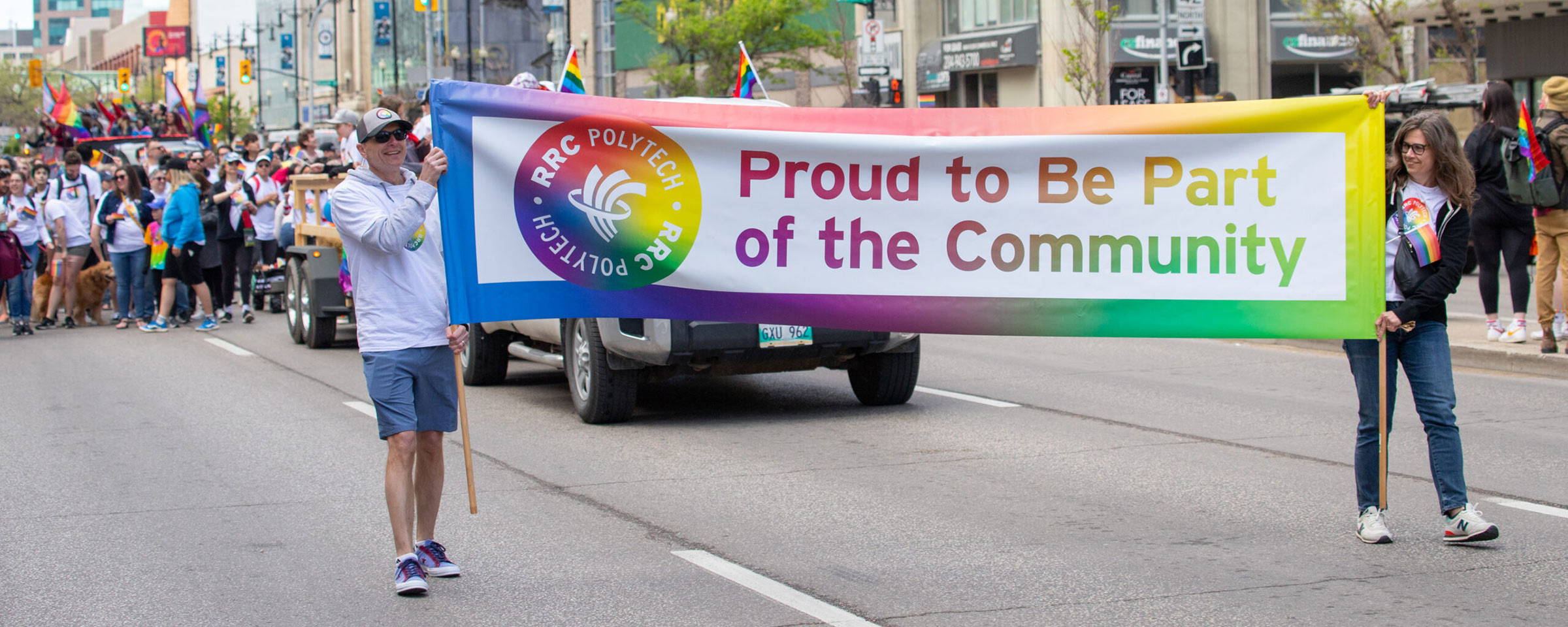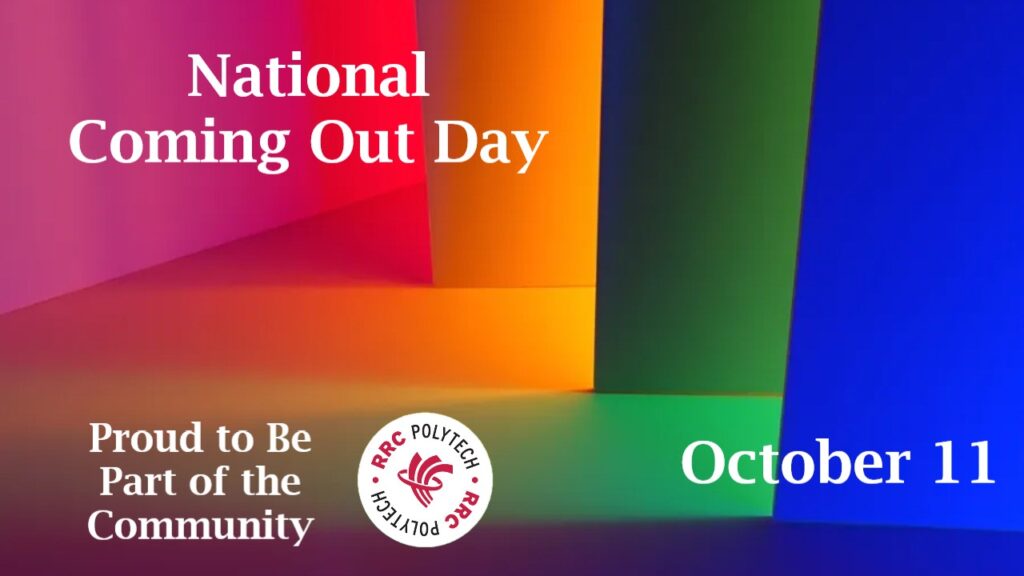October 11 – National Coming Out Day
Post written by Dr Obren Amiesimaka, Gender and Sexual Diversity Working Group Member at RRC Polytech.
What is National Coming Out Day (NCOD)?
In Canada, and in several other countries, National Coming Out Day (NCOD) is observed on October 11. NCOD is a day to celebrate coming out by 2SLGBTQIA+ folx and to honour all who have come out, encourage those in the process of coming out and support folx who are yet to come out. NCOD reminds society that 2SLGBTQIA+ folx have the right and freedom to live their full, true identities, openly and confidently, every day, every time and everywhere.
The NCOD date is highly symbolic. Started by Robert Eichberg and Jean O’Leary, the inaugural NCOD in the US was held on October 11, 1988, which was one year after the Second National March on Washington for Lesbian and Gay Rights. About 750,000 people had marched in 1987 to advocate for people living with HIV/AIDS and for queer rights at the height of the AIDS epidemic.
Why is National Coming Out Day (still) important?
“Most people think they don’t know anyone gay or lesbian, and in fact, everybody does. It is imperative that we come out and let people know who we are and disabuse them of their fears and stereotypes.” This 1993 quote of Robert Eichberg, one of the NCOD founders, sums up the spirit of NCOD.
Over three decades later, despite significant improvements in 2SLGBTQIA+ rights and visibility, we still live in a heteronormative world where the default assumption is that everyone is cis gender and straight. Many people would still say that they do not know any queer folx personally. NCOD is important as it celebrates coming out to help show the world that being 2SLGBTQIA+ is normal and queer folx are in every family, school, workplace and country the world over. It is also essential for showing folx who are struggling with their sexuality that they are not alone, abnormal or unloved.
‘Coming out’ as 2SLGBTQIA+ is the process of socially acknowledging one’s sexual orientation and/or gender identity. It is about being your authentic self so you can live your best life – out loud, proudly and freely. As Nelson Mandela said: “There is no passion to be found playing small – in settling for a life that is less than the one you are capable of living.”
It starts with coming out to yourself; accepting your sexuality/gender identity is typically the first step, and then when you are ready, you may choose to share your truth with others. There’s no right or wrong way to come out; the perfect time to come out is whenever you are ready and safe. Coming out is not for others, it’s for you! However, sharing our experiences by coming out can help us feel connected, empowered, supported and inspired.
Coming out is often a recurrent process; we do not come out just the once. We come out to family who are not aware, new people we meet – at school, work, anywhere really, etc. How you come out and who you choose to tell, is your decision to make. It is always advisable to begin with people who you are most comfortable with – people who would support you and stand with you.
Yes, NCOD is the day set aside to celebrate coming out, but coming out day can be any day. So, do not feel compelled to come out on October 11. It is alright to be in the closet if you are not ready for any reason whatsoever – you are still coming to terms with being 2SLGBTQIA+, you live in an unsafe environment, you come from one of the 63 jurisdictions around the world that criminalize being 2SLGBTQIA+ etc. Being in the closet does not make you any less 2SLGBTQIA+; just know, a time will come when you can come out of that closet and walk in the sun!
You have a lovely 2SLGBTQIA+ community and many allies cheering you on now, and who will be there to welcome and support you whenever you choose to come out.
Trust and believe, it gets better!
At RRC Polytech, we believe that diversity is our strength. We are committed to creating inclusive learning and working environments where everyone feels safe, respected, and celebrated.
Today is an excellent opportunity to consider the ways each of us can make our learning and working spaces safe(r), more welcoming and more inclusive; and how we can support 2SLGBTQIA+ friends and colleagues.
Below are resources and further information on being allies for everyone – it doesn’t matter who you are, everyone deserves to be treated with kindness, dignity, and respect. If you have any questions or comments, please email us at diversity@rrc.ca.
Resources:
- A coming out story
- Allyship is leadership
- How to be an Ally to a Bi+ Person
- What Does Trans Allyship Look Like?

